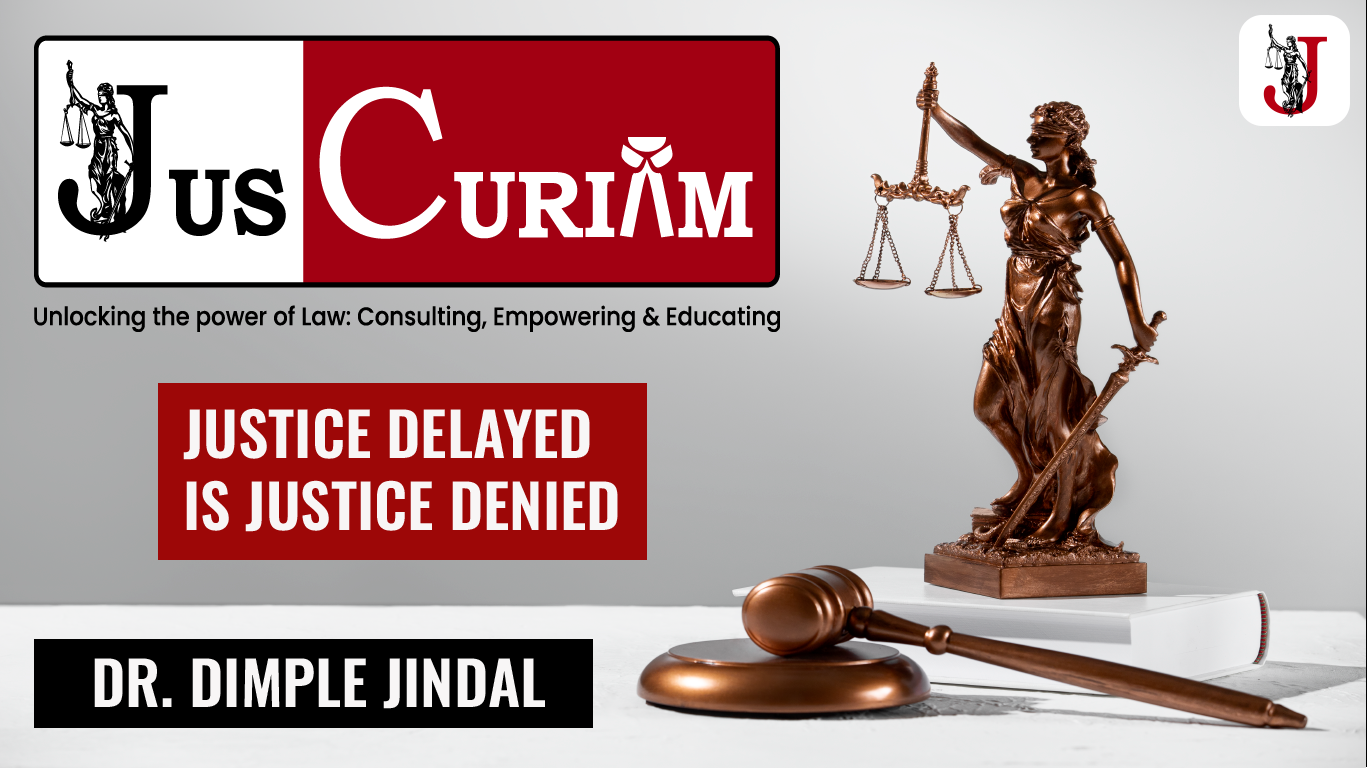JusCuriam
Unlocking the Power of Law: Consulting, Empowering & Educating
Justice delayed is justice denied. Justice delayed in India is a complex issue with multiple factors that contribute to the denial of justice. Backlog of cases, insufficient number of judges, procedural delays, lack of infrastructure, complexity of laws and legal system, and legal culture and mindset are the key reasons at large for the broken justice system in India. The JusCuriam organization is helping the people get timely justice. Making people aware of their rights is the motto of the organization.
Law & justice: Justice delivered by the court refers to the fair and impartial resolution of legal disputes or conflicts according to established laws, regulations, and principles. Courts are institutions within the judicial system that play a crucial role in upholding the rule of law and ensuring that individuals are treated equitably under the law. Legislation, an assembly of people’s representatives, makes the laws for justice for all.
It has been observed that India is far behind in having a good judicial system, and the majority of the people lack legal awareness. This illiteracy contributes to several issues, like increase in crime rates and violations of fundamental rights, etc.
Meaning of JusCuriam:
JusCuriam is an organization that was founded with the aim of filling this gap of legal illiteracy through several means. The word “JusCuriam” is derived from the combination of the two different Latin terms “Jus” and “Curiam”. In Latin, “Jus” means law and Justice for all, and “Curiam” means “by the Court”.
Courts are expected to be neutral and unbiased, treating all parties involved in a case equally and without favoritism. The judges and other court officials are required to base their decisions solely on the facts and the applicable laws. Justice involves ensuring that all parties have an opportunity to present their arguments and evidence before an impartial tribunal. This includes the right to legal representation, the right to present evidence and witnesses, and the right to cross-examine opposing witnesses. Due to legal illiteracy, India is far behind in this Court’s justice.
Fundamental aspect: A fundamental aspect of justice is the concept of due process, which ensures that individuals are afforded a fair and transparent legal procedure. This includes the right to a timely and public trial, the right to know the charges against them, and the right to an appeal. The principle of equality before the law means that everyone, regardless of their social status, wealth, or other characteristics, should be treated fairly and without discrimination. This ensures that justice is blind and that all individuals are subject to the same legal standards.
JusCuriam is working with the aim of providing justice to all, either by educating the people about their rights or by enabling them to fight for their rights. Delayed justice is equal to the denial of justice. This organization is working to minimize the time taken for justice in court and enable people to fight for their rights. Both missions can be achieved only by educating the people and assisting them in the judicial system.
Human rights: It’s important to note that the concept of justice can be complex and may vary across legal systems and cultures. The courts’ role in delivering justice is essential for maintaining order in society, protecting individual rights, and resolving disputes in a way that upholds the principles of fairness and legality. The role of society should be proactive in protecting human rights. Dr. Dimple Jindal is the founder, controller, and director of the JusCuriam organization, which is stepping ahead towards its aim of making the nation a progressive state, and he is working day and night for this mission.
For Legal education, judiciary preparation and legal awareness, visit at www.juscuriam.com
